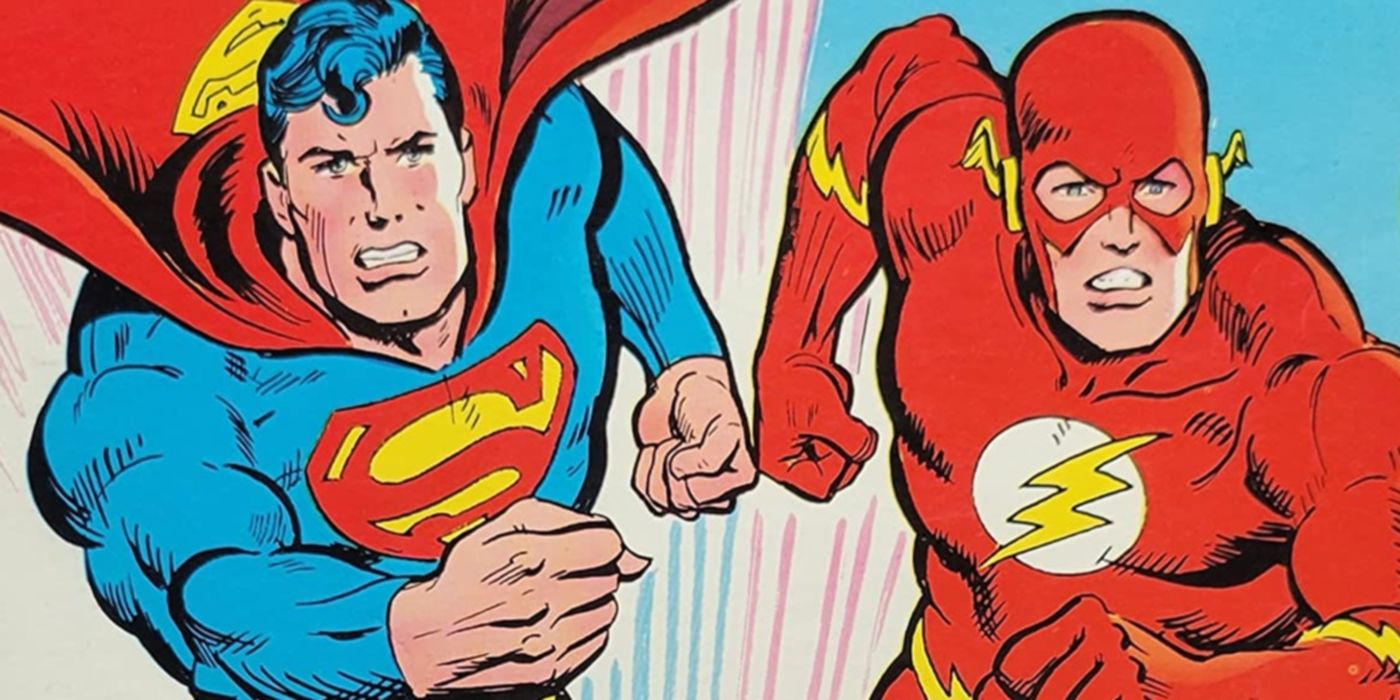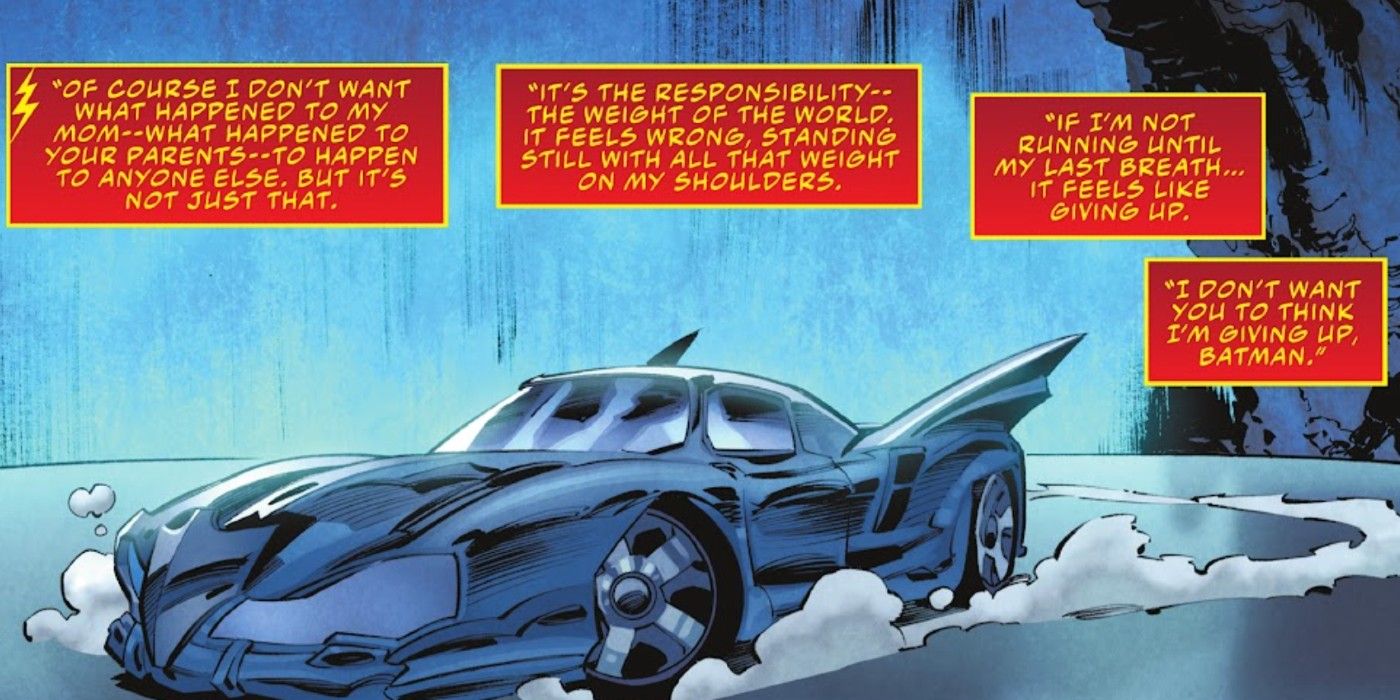Warning: spoilers ahead for Batman: Urban Legends #17!
Though they're each known as one of the fastest beings in the DC universe, there's one common thing that neither The Flash nor Superman can outrun. The Scarlet Speedster can beat out nearly any hero or villain he comes into contact with when it comes to a race, but Barry Allen's own anxieties and guilt prove much harder to overcome.
This struggle can be seen in a recent team-up between Barry Allen and Batman. In the pages of Batman: Urban Legends #17, the detective duo join forces when Captain Cold comes to Gotham to assist Mr. Freeze with a theft. As Flash zooms across Gotham looking for clues to Freeze and Cold's whereabouts, Bruce urges him to retreat to the Batcave, hoping that a brief rest will help the pair gather their bearings. Here, Barry shares an internal dilemma he struggles with as a result of his super-speed. When you're able to run everywhere in the blink of an eye, he rationalizes, it feels wrong to ever stop before the case is solved and the people are safe: "If I'm not running until my last breath... it feels like giving up. I don't want you to think I'm giving up, Batman."
The scene comes in a short story titled "Cold Shoulders" from Ryan Cady and Gleb Melnikov. Urban Legends #17 contains four of these short stories, which all see Batman interact with characters from recent or upcoming DC films (Flash, Aquaman, Black Adam and The Riddler). The kind of internal battle Barry displays certainly isn't uncommon in the caped community, and it's one that is often found in Superman himself.
Superheroes often struggle with an overwhelming sense of responsibility that comes from them having extraordinary powers. Superman, for example, in many comics grapples with the fact that he can potentially notice more crimes and disasters in the world with his super-hearing than he can physically stop. Sometimes, his ability to venture off-planet (such as during his current Warworld Saga) leads to a whole other dilemma, as he has to balance the weight of Earth's safety against that of a distant world. The Flash here is shown to face a similar problem, as the fastest man in the world struggles with finding the time and ability to slow down. When he's able to run across the city in the blink of an eye, Barry feels guilty taking a moment to gather his thoughts if he knows others are at risk. Even when his running isn't making any particularly useful contribution, the act of running in and of itself feels like a necessity to The Flash, who views the alternative akin to giving up.
To many superheroes, this battle marks a sort of survivor's guilt linking to personal trauma. "Cold Shoulders" touches on the fact that because Barry, like Bruce, lost a mother to a crime when he was young, he feels compelled to use his powers in a manner that prevents anyone other child from facing a similar tragedy, no matter how impossible that task may prove. Here lies the distinct tragedy that comes with both The Flash and Superman's super-speed: When a hero's power allows them to be anywhere in the blink of an eye, their personal sense of responsibility becomes that much greater.
Batman: Urban Legends #17 is available from DC Comics now.


